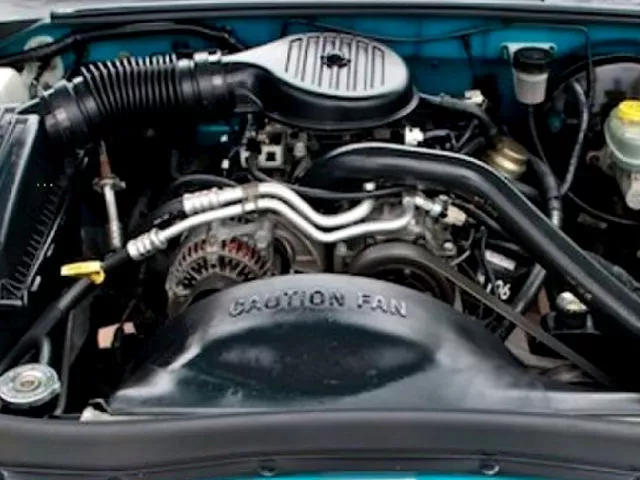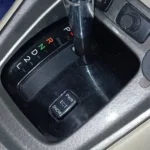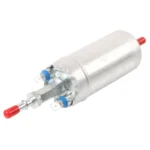The Dodge engine is a crucial element of Dodge automobiles, liable for converting fuel into energy needed to propel the vehicle. As with every mechanical component, engines are vulnerable to issues and malfunctions. The most frequent 3.9 magnum v6 problems are gasket failure in the intake manifold and oil sludge buildup. They are stretched or worn timer chains and defective wear on the valve guide.
In this post, I’ll discuss the signs that point to Dodge 3.9 V6 problems that are common, the causes of these issues, and the most commonly used solutions to fix the issue. Also, I’ll give you tips for avoiding 3.9 Dodge engine problems and ensuring your engine stays in good working order for many years.
Table of Contents
General information of 3.9 Dodge engine
| Engine Specifications | |
| Engine model | Chrysler 3.9 L (239 cu in) Magnum |
| Layout | Four stroke, V6 |
| Fuel type | Gasoline (petrol) |
| Production | 1992-2003 |
| Displacement | 3.9 L, 3,906 cc (239.0 cu in) |
| Fuel system | 1992-1996: Multi Point Fuel Injection 1997-2003:: Sequential Multiport Fuel Injection |
| Power adder | None |
| Power output | From 177 PS (130 kW; 175 HP) at 4,400 rpm to 182 PS (134 kW; 180 HP) at 4,400 rpm |
| Torque output | From 264 N·m (26.9 kg·m, 194.6 ft·lb) at 3,200 rpm to 305 N·m (31.1 kg·m, 224.8 ft·lb) at 3,200 rpm |
| Firing order | 1-6-5-4-3-2 |
| Dimensions (L x W x H): | |
Common 3.9 magnum v6 problems
Before diving into the specific issues typically associated with the 3.9 Dodge engine, it’s essential to know the general engine issues that could affect Dodge automobiles. The most frequently encountered Dodge engine problems are:
Overheating
Overheating is a problem that occurs for all types of engines, and Dodge engines aren’t any different. Many factors, such as low levels of coolant, a malfunctioning thermostat or water pump, or a clogged radiator, could cause this.
Engine Misfiring
The cause of misfiring is when one or more cylinders within the engine fail to start correctly. The vehicle may then begin to perform poorly, resulting in signs like the sound of a rough idle, slowing or jerking when you accelerate, or a decrease in power.
Oil Leaks
Oil leaks can happen for many reasons, such as damaged seals, worn gaskets, or bolts loose bolts. These leaks can result in low oil levels that could damage engines if unchecked.
Knocking or Tapping Sounds
These sounds could indicate issues such as lower oil levels, worn-worn-out bearings, and auditing mechanisms.
Failure to Start
Various issues, like an unresponsive battery, a damaged starter motor, or an improperly functioning ignition switch, can result in the vehicle not starting.
These are only a few of Dodge vehicles’ most frequent engine issues. It is essential to be on the lookout for any unusual signs or warning signs and fix any problems as quickly as they are noticed to avoid further damage to the engine.
3.9 Dodge Engine Problems & Solutions:
Its 3.9 Dodge engine is a V6 engine that has been found in a variety of Dodge automobiles over the decades. Although this engine generally works well, however, some issues have been reported to happen:
Intake Manifold Gasket Failure
One of the most frequent issues with a 3.9 Dodge engine is the breakdown of the gasket for the intake manifold. This could cause coolant to escape through the intake manifold, leading to overheating and possibly engine damage.
The signs of the intake manifold gasket’s failure could include smoke emanating from your exhaust system, pleasant smells from the engine compartment, and low cooling levels. If the gasket for the intake manifold fails, it needs to be replaced to resolve this problem. It could be necessary to replace the entire intake manifold. Additionally, it is essential to find any signs of engine damage or corrosion caused by the leak of coolants in the combustion.
Oil Sludge Buildup
Another problem found in one of the most common issues with 3.9 Dodge engines is oil accumulation of sludge. It happens when engine oil is broken down and creates a highly dense sludge. This can block oil passageways as well as cause harm to your engine. Signs of sludge buildup could include:
- A decrease in pressure on the engine.
- Knocking or tapping sounds.
- A decrease in engine performance.
It is possible to clean the motor to eliminate the sludge, which will help remove oil sludge accumulation. Replace the filter on your oil and the oil more frequently to avoid further build-up.
In time, the timing chain of the 3.9 Dodge engine can become stretched or worn, making the motor run poorly or stop working altogether. Signs of wear in the timing chain can include a sound emanating from the engine or difficulties getting the engine started.
If your timing chain has worn, it must be replaced to fix the problem. In some cases, the tensioner and guides could also be returned. Regular maintenance will help to avoid wear on the timing chain by changing the oil and filter in the intervals recommended by the manufacturer.
Valve Guide Wear
Another issue that could be a 3.9 magnum v6 problems is the wear and tear of the guides for valves. The engine is likely to use up oil, which can result in reduced engine performance and damage to your engine. The signs of wear on the valve guide could include blue smoke emanating from exhausts, decreased acceleration or power, or increased oil consumption.
In this instance, it is necessary to replace the cylinder head to correct the issue. Sometimes, the cylinder head could require removal to repair the problem. It is also essential to look for damages to the valves or cylinder heads due to worn guides.
Prevention of 3.9 Dodge Engine Problems:
Ensuring the longevity and optimal effectiveness of your 3.9 Dodge engine requires proactive preventative steps. These tips can save you from costly repairs and keep your vehicle in good condition for years.
Adhere to the Manufacturer’s Maintenance Schedule
One of the most efficient methods to protect your engine is by systematically adhering to the manufacturer’s recommended maintenance schedule for your vehicle. The comprehensive schedule provides specific timeframes for essential tasks like changing filters and oil, tune-ups, maintenance, and other essential services. Follow these guidelines to identify possible problems with your engine early and then fix the issue, saving time and money.
Opt for High-Quality Oil and Filters
Choosing the correct filters and oils is crucial to ensure a healthy engine. Ensure you use only the best oil that complies with the specifications set by the manufacturer and includes the suggested viscosity. This will ensure proper lubrication and prevent issues such as the typical oil sludge accumulation, which could cause a lot of damage to the engine’s internals. Additionally, top-quality filters are essential in keeping harmful substances out of the way while preserving the health of your engine overall.
Regularly Monitor Fluid Levels
Be aware of the level of fluid, especially oil and coolant. Making sure that these fluids are at ideal levels is vital to avoid damage to the engine. Insufficient fluid levels are harmful, making it a habit to refill them when needed.
Avoid Harsh Driving Conditions
The conditions under which you drive your 3.9 Dodge engine can significantly influence the health of your vehicle. Be aware of dust, extreme temperature conditions, and heavy towing, as they could stress the engine unnecessarily. When you can, take steps to reduce exposure to extreme conditions. If you are experiencing extreme heat, you should consider using additional cooling systems when towing heavy loads and regular breaks to relieve engine pressure.
Address Issues Promptly
Last but not least, look for abnormal signs or symptoms your engine may show, like engine noise or leaks in oil. When you detect these issues, take your time–promptly schedule an inspection with a qualified mechanic. Early intervention can stop further damage and prevent expensive repairs while ensuring your engine is durable and reliable over the long haul.
What are some common issues with the 3.9 Dodge engine?
Common problems include oil leaks, overheating, and faulty fuel injectors.
How can I prevent overheating in my 3.9 Dodge engine?
Regular maintenance such as coolant flushes and checking for leaks can help prevent overheating issues.
Why is my 3.9 Dodge engine experiencing rough idling?
Rough idling could be caused by issues with the spark plugs, air intake system, or fuel delivery.
What should I do if my 3.9 Dodge engine is consuming excessive oil?
Check for leaks and have the piston rings inspected as they may be worn out and causing oil consumption.
How often should I replace the timing belt on my 3.9 Dodge engine?
The timing belt should be replaced according to the manufacturer’s recommended interval, usually around every 60,000-100,000 miles.
Can a faulty oxygen sensor cause performance issues in a 3.9 Dodge engine?
Yes, a malfunctioning oxygen sensor can lead to decreased fuel efficiency and overall performance issues.
Is it normal for the check engine light to come on frequently in a 3.9 Dodge engine?
Frequent check engine light activations could indicate underlying issues that need to be diagnosed and repaired promptly.
What is the average lifespan of a 3.9 Dodge engine?
With proper maintenance and care, a well-maintained 3.9 Dodge engine can last upwards of 200,000 miles before major repairs are needed.
Conclusion
Its 3.9 Dodge engine is generally stable. However, it could have common issues such as gasket failure in the intake manifold, oil sludge accumulation, timing chain wear, and wear on the valve guide. The problem can be solved with solutions such as a gasket or part replacement. Follow the recommended maintenance schedule for your vehicle by using premium filters and oil, observing the levels of fluids, avoiding rough road conditions, and fixing problems quickly. You can help prevent these issues. When taking good care of the 3.9 Dodge engine and addressing problems quickly, you can guarantee long-term reliability and efficiency for your vehicle.
reference:engine-specs
Related topic:Differences between chevy 400 small block vs 350










